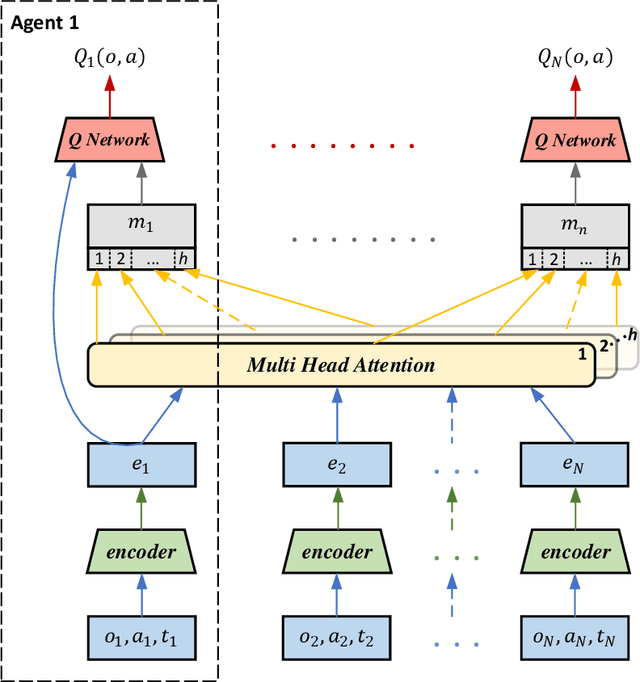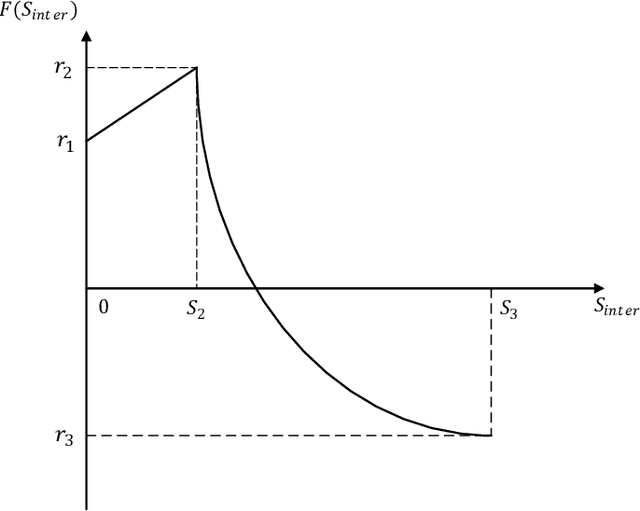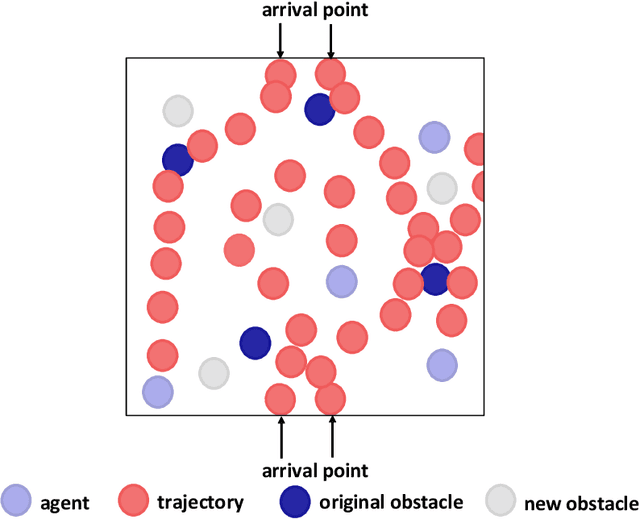Zhaoxia Wu
Efficient Multi-robot Exploration via Multi-head Attention-based Cooperation Strategy
Nov 05, 2019



Abstract:The goal of coordinated multi-robot exploration tasks is to employ a team of autonomous robots to explore an unknown environment as quickly as possible. Compared with human-designed methods, which began with heuristic and rule-based approaches, learning-based methods enable individual robots to learn sophisticated and hard-to-design cooperation strategies through deep reinforcement learning technologies. However, in decentralized multi-robot exploration tasks, learning-based algorithms are still far from being universally applicable to the continuous space due to the difficulties associated with area calculation and reward function designing; moreover, existing learning-based methods encounter problems when attempting to balance the historical trajectory issue and target area conflict problem. Furthermore, the scalability of these methods to a large number of agents is poor because of the exponential explosion problem of state space. Accordingly, this paper proposes a novel approach - Multi-head Attention-based Multi-robot Exploration in Continuous Space (MAMECS) - aimed at reducing the state space and automatically learning the cooperation strategies required for decentralized multi-robot exploration tasks in continuous space. Computational geometry knowledge is applied to describe the environment in continuous space and to design an improved reward function to ensure a superior exploration rate. Moreover, the multi-head attention mechanism employed helps to solve the historical trajectory issue in the decentralized multi-robot exploration task, as well as to reduce the quadratic increase of action space.
 Add to Chrome
Add to Chrome Add to Firefox
Add to Firefox Add to Edge
Add to Edge